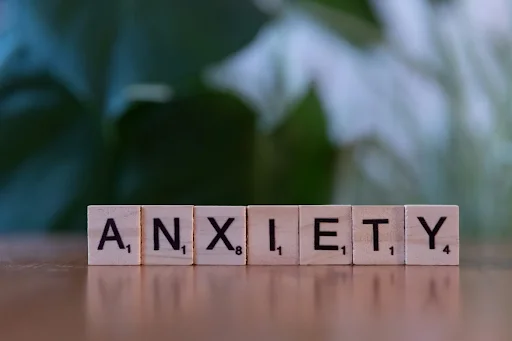Stress and anxiety affect nearly everyone at some point in their lives. Often, our daily habits contribute significantly to these feelings.
By identifying and changing these habits, people can move towards a more serene and fulfilling life.
A proactive approach to managing stress can lead to improved mental well-being. Let’s explore several common habits that cause stress and anxiety and how to reduce them effectively.
Discover insights that complement your interests—dive into our related stories now.
Understanding Stress and Anxiety
Stress and anxiety, common, serve different purposes. Stress often arises from external pressures, such as work deadlines or personal relationships, whereas anxiety involves worry and apprehension about future events.
Both can affect mental health, leading to physical manifestations like headaches or fatigue. Recognizing the specific triggers of stress and anxiety can empower individuals to take measures to mitigate their adverse effects.
Learning to identify these triggers is important for taking proactive actions aimed at reducing the levels of anxiety and stress in daily life. Poor lifestyle choices can exacerbate stress and anxiety.
Factors like lack of exercise, poor nutrition, and insufficient sleep significantly impact well-being.
Prioritizing a balanced lifestyle leads to better resilience against stressors. Engaging in regular physical activity can improve mood through the release of endorphins, and a nutritious diet supports brain function and emotional health.
Establishing healthy sleep routines develops better rest and recovery, important for coping with daily challenges.
Reducing Substance Use
Substance use can exacerbate stress and anxiety rather than alleviate them. Many people resort to alcohol, caffeine, or drugs to cope with their feelings. Initially, these substances may provide temporary relief, but their long-term effects lead to greater anxiety and stress levels.
Tolerance develops, requiring increased amounts to achieve the same effects, trapping individuals in an unhealthy cycle. Whether you need professional addiction care in California, New York, or anywhere else, seeking help can pave the way toward recovery. Overcoming substance dependency helps break the cycle and provides healthier coping mechanisms.
Support from professionals, counseling, and peer support groups is are invaluable resource during this process. Developing hobbies or engaging in community activities can replace unhealthy habits and provide emotional support from social connections.
The Role of Time Management
Time management is a key factor in reducing stress and anxiety. Inefficient handling of time can create overwhelming feelings as deadlines loom closer. People often juggle multiple responsibilities, leading to burnout and stress.
Effective prioritization of tasks can alleviate this burden. Tools such as calendars, to-do lists, and time blocking can help manage daily responsibilities. Setting realistic goals is another important aspect of time management.
Often, people feel pressure to be constantly productive, which can lead to feelings of inadequacy when expectations aren’t met. By setting achievable, specific objectives, individuals can develop a sense of accomplishment, significantly reducing stress.
Striking a balance between work, family, and personal time is critical to prevent feelings of being overwhelmed. Emphasizing quality over quantity can improve time effectiveness.
Transforming Negative Thinking Patterns
Negative thinking significantly contributes to stress and anxiety. Individuals may fall into patterns of overthinking or catastrophizing situations, leading to heightened worry over issues that might not occur.
Recognizing these negative thought patterns is important in addressing their impacts. Cognitive Behavioral Therapy (CBT) techniques can help reshape these harmful thinking habits.
Practicing mindfulness helps ground individuals in the present moment, reducing anxiety over potential future problems.
Deep breathing exercises or meditation can develop mental clarity and emotional calmness. Applying positive affirmations can reshape perspectives, leading to improved emotional outcomes.
Identifying and challenging irrational beliefs allows individuals to recognize the influence of their thinking on their stress levels and encourages resilience in the face of challenges.

Establishing Healthy Boundaries
Setting healthy boundaries is fundamental to maintaining emotional health. Often, people find it difficult to say no, taking on excessive responsibilities that lead to stress.
Understanding personal limits is critical for personal well-being and mental clarity. Establishing clear boundaries allows for a more balanced lifestyle, permitting time for self-care and relaxation.
Communicating these boundaries to friends, family, and colleagues helps cultivate respectful relationships rooted in understanding. By practicing assertiveness, individuals can prioritize their needs without guilt.
This approach encourages a healthier dynamic in relationships, minimizing misunderstandings that can lead to stress. Recognizing when to step back and take time for oneself significantly contributes to reducing feelings of overwhelm.
Engaging in self-care activities develops emotional resilience. Taking time out for hobbies, reading, or simply relaxing can recharge mental energy, promoting healthier stress management.
Finding effective strategies to reduce stress and anxiety contributes to well-being. Understanding triggers, managing time wisely, altering negative thought patterns, reducing substance use, and establishing boundaries are components of a holistic approach to mental health.
A commitment to ongoing self-improvement can lead to lasting benefits in emotional resilience and quality of life.
Spotlight content just for you—see what our featured posts have in store today.







